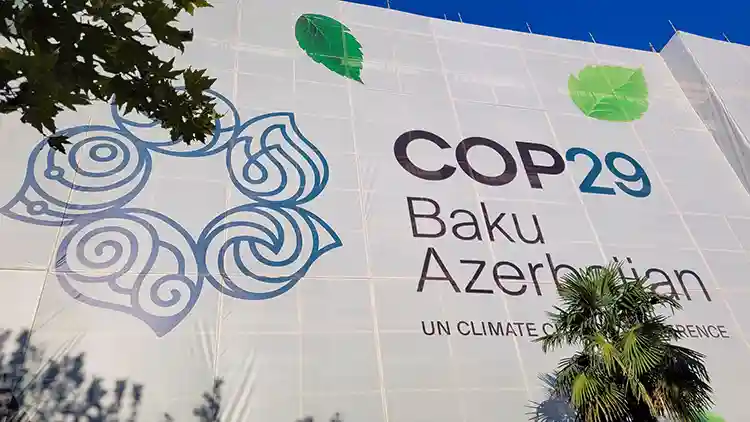
Valencia suffered extensive flood damage this October. Image: Vicente Sargues/Shutterstock
Geographical’s climate columnist Marco Magrini fears that COP29 has nowhere to go as the planet continues to warm


‘Victory for Trump is likely to all but end global hopes of staying below 1.5 °C,’ Simon Evans, senior policy editor at CarbonBrief, wrote on X. Yet the reality is much harsher: we have missed the 1.5° C target already. What’s really at stake now is the 2° C target, as prescribed by the Paris Agreement. The treaty, signed by the world’s nations in 2015, aimed to ‘holding the increase in the global average temperature to well below 2 °C above pre-industrial levels and to pursue efforts to limit the temperature increase to 1.5 °C.’
In other words, the Paris Agreement – once hailed as the planet’s saviour – is severely at risk. As delegates from every nation are gathering in Baku, Azerbaijan, for the annual UN climate change conference, this time labelled COP29, the world is officially on track to exceeding a scary 3°C by the century’s end.
The Earth’s climate system has a natural inertia, a resistance to change. For this reason, as we wrote in a past ClimateWatch column, even if tomorrow we’ll stop emitting carbon dioxide, methane and nitrous oxide, the planet’s temperature would still keep on rising for decades. A monumental effort in decarbonising our economies was needed in order to stay below the 1.5°C temperature increase as recommended by climatologists. The trouble is that greenhouse gas emissions are currently still rising. According to the International Energy Agency, they could peak in 2030. There are plenty of opportunities for the global mean temperature to overshoot 2°C, the Paris-killing threshold.
If true to his campaign pledges, President Donald Trump will promote oil and gas production, terminate subsidies for clean energy, reduce the role of the Environmental Protection Agency and, once again, take the US out of the Paris Agreement. He never has recanted from his famous remark – climate change is ‘a hoax.’ Four years of presidency may be a relatively short time, but not after having collectively squandered decades without ever making a dent on fossil fuel consumption. And, well, not when you are America, the leading historical carbon polluter.
This puts COP29 at a dead end. On paper, the summit is called to solve the age-old problem of financing climate change adaptation efforts in poorer countries, to find how to fund ‘loss and damage’ or the rescue of communities affected by extreme events and to implement last year’s major accomplishment in Dubai: the commitment to ‘transition away from fossil fuels.’ In the year that passed since, as said in the latest Emission Gap Report by the UN Environmental Program, there were no hints of such a transition.

As in the case of Dubai, this year’s host country Azerbaijan is a petrol State, too. As it happened in 2023, an Azeri senior official at COP29 was already caught arranging a meeting to discuss gas deals during the conference. In other words, the climatic pow-wow was already prone to be a failure with some final lukewarm agreement as a facelift. Now, with American diplomats practically unable to pledge anything (whichever they do will be dismantled by the Trump administration in a few months’ time) such odds are even greater.
Enjoying this article? Check out related reads:
While this happens, there is no shortage of events pointing to a rapid worsening of the climatic scenario. The deluge that devastated Valencia on 29/30 October with the equivalent of a year’s worth of rainfall in eight hours, made a big impression. But in the same week, truly extraordinary precipitations (albeit with less victims) were recorded in France, Italy, New Mexico, Democratic Republic of Congo, Iran, Saudi Arabia and the Philippines. In the same week the highest sea surface temperature for this time of the year was recorded, and a group of scientists warned again of a slowing of the Atlantic Meridional Overturning Circulation which could end having ‘devastating and irreversible impacts.’
It is precisely the risk of this possible irreversibility that should make people vote for climate-conscious leaders and push nations decarbonise their economies faster. Yet, the world is, without any doubt, willing to take the risk.
The basic physics of climate change (some gas molecules have the natural property of retaining the Earth’s infrared radiation) explain the crescendo in mean temperatures and extreme weather events we witnessed in the last four years. They will carry on intensifying in the next four, before another US election.





